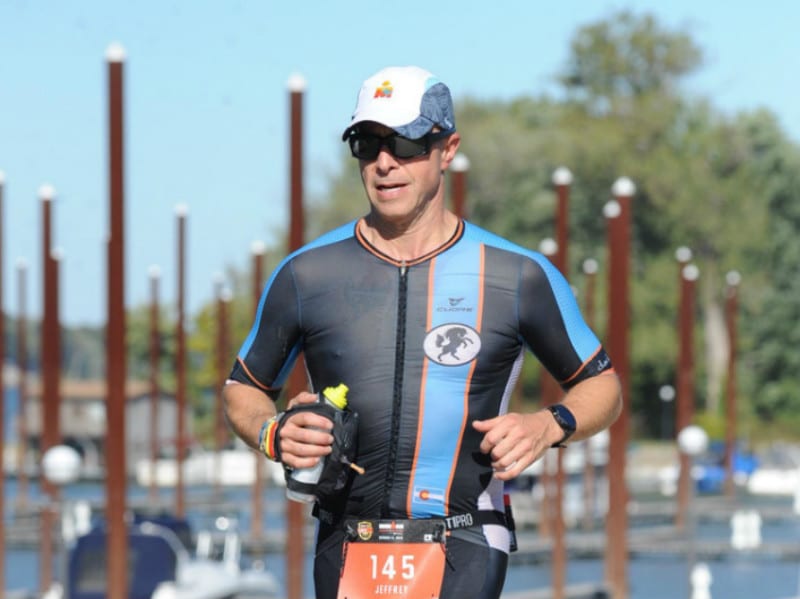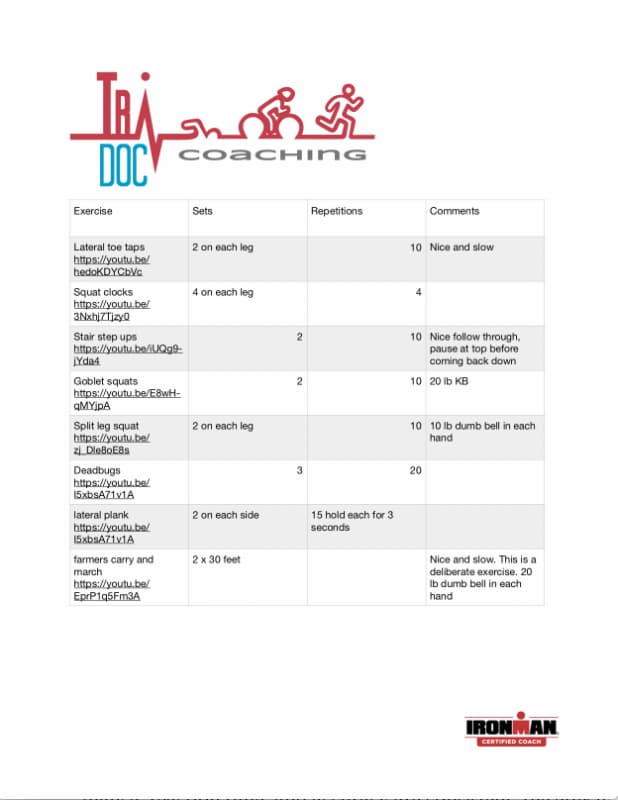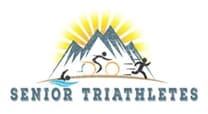Why Should Seniors Use A Triathlon Coach?

Why would a senior triathlete hire a coach for triathlon training? Triathlon coach, Dr. Jeff Sankoff, also known as The Tri Doc, shares his thoughts.
Meet the Tri Doc
I became acquainted with senior triathlete Dr. Jeff Sankoff during the January 23, 2020 episode of the Tri Swim Coach podcast. In that conversation, Jeff shared five common myths of triathlon, including the myth that we must get slower as we get older.
Since then, I have also listened to several episodes of the Tri Doc podcast which Jeff produces. Jeff is an Ironman University certified triathlon coach and finisher of over 50 triathlons of various distances. He is also a husband, father, and emergency physician living in Denver, Colorado.
Jeff possesses a unique ability to communicate information from his medical training in a manner that I can easily understand.
After listening to Jeff, I asked him to make a case for triathletes age 50 and over to hire a coach for their triathlon training. I came away from our conversation with a new perspective which I have organized into three reasons for seniors to hire a triathlon coach.
Before Starting Triathlon Training
Jeff recommends that anyone with risk factors for heart disease should be cleared for training by a medical doctor before beginning training. You may have heard of deaths that have occurred during triathlons, rare as they are. Check out the Tri Doc podcast from July 22, 2019 for more on this subject.
The Tri Doc’s Three Reasons for Hiring A Triathlon Coach for Seniors
Many older athletes are intimidated by the thought of doing a triathlon, often because of its three sports, one which may be especially challenging to an individual. For many this is swimming. This was also the case for Jeff.
Triathlon is an underappreciated sport for older athletes.
Dr. Jeff Sankoff, The Tri Doc
The reality, according to Jeff, is that triathlon is excellent for older athletes precisely because it does involve three sports. Training for the three sports of triathlon leads to a broader range of fitness and reduces the risk of overuse injuries common in older athletes.
So, now that you are convinced of the merits of triathlon, consider the reasons you should hire a coach to guide your training.
Reason#1: Realistic Goal Setting
Goals are useful for new and experienced triathletes alike. They provide clarity for defining and for evaluating the results of a training plan. For this reason, goal setting is one of the first benefits of hiring a coach.
For the beginner triathlete, one who ‘doesn’t know what he doesn’t know’, this can be especially valuable. The triathlon coach will work with the athlete to identify his/her goals. The coach can also provide a ‘sanity-check’ on the individual’s goals, helping the triathlete set achievable ones and prioritize triathlon gear purchases.
To illustrate, let me share how a triathlon coach would have helped me with my first triathlon.
To be clear, I did not have a coach. However, before my first triathlon, I read almost everything on triathlon that I could find and trained diligently in swimming, biking, and running. My daughter and I held a mock triathlon, including the transitions, a week before the race. I felt prepared.
However, days before the race, my thoughts ranged from ‘just finishing’ to ‘winning my age group’. I really had no clue of what the race would be like.
On race day, I saw my first tri-bikes, initially in the transition area and then as they sped past my hybrid bike and me as if I was leisurely riding in the park with my youngest grandchild.
I finished with relative ease but also learned that there are some very fit ‘old people’. There were many other lessons from that day, all learned while I fell in love with the sport.
In hindsight, a coach would have helped me set realistic goals beyond finishing the race.
Reason #2: Smarter Triathlon Training
Are you looking to compete in a longer distance triathlon? Or do you have your heart set on standing on the podium at the awards ceremony of a major triathlon? If you and your coach agree that your goals are realistic, the coach will provide a roadmap for realizing them.
A coach typically begins with an assessment of the athlete’s current fitness and capability in the three sports. Jeff usually requests videos of the athlete swimming, biking, and running. He studies these videos to identify changes to the swim stroke, bike fit, and running form that will improve performance and reduce the possibility for injury.
With focused goals for the training, the coach will develop a customized training plan for the triathlete. The customized plan often includes advice for recovery and nutrition and a strategy for race day.
Through periodic communication, the coach and triathlete will review progress against the plan and make any adjustments, keeping in mind the athlete-specific goals and the reality that our bodies are less forgiving of training errors as we age.
Reason #3: Minimizing Injury
As we age, we become more prone to overuse injuries. For this reason, all Tri Doc training plans incorporate strength training.
Most people misunderstand strength training as part of triathlon training. For example, many of us have visions of bulging biceps and broad shoulders when we think of strength training. However, bulk is not the aim in triathlon training.

Instead, the goal of strength training is to maintain the muscle that we have and strengthen muscles around joints to prevent injury. Strength training is especially important for older athletes since muscle loss occurs at an increasing rate as we age.
Should injuries occur, the triathlon coach will ‘tweak’ the training schedule so the athlete continues to increase their fitness and endurance while the injury heals.
Related post: Six Principles of Triathlon Training for Seniors
Not everyone needs a coach but everyone can find a reason to hire a coach.
Dr. Jeff Sankoff, The Tri Doc
One More Benefit of a Triathlon Coach for Seniors
Most triathletes in their 50s, 60s, and 70s are highly motivated and competitive. However, as we become less energetic or suffer injury, the motivation to train can wane. A coach will encourage the older athlete to continue training and racing, helping him/her recover from injury and even reach new levels of performance.
Related post: 5 Ideas for Staying Motivated with Age Young – A Conversation with Tony Schiller
What Does It Cost to Hire a Triathlon Training Coach?
Jeff described two approaches for amateur triathletes to involve a triathlon coach in their training:
- Purchase a ‘canned’ training plan – For somewhere around $30/month, one can purchase a training plan based on a specified triathlon distance (e.g. sprint, Olympic, Half-Ironman, Ironman). Most plans are not age-specific, a major concern to this audience.
- Personalized coaching – This approach provides the triathlete regular access, usually by phone, text message, and email, to a triathlon coach. The goal setting, video analysis, and personalized training plans referred to above are included. The cost, which typically ranges from $150/month to up to $600/month for elite athletes, depends mostly on the frequency of interaction between the athlete and coach. Jeff’s average monthly fee is around $200.
One caveat. Many, but not all, triathlon coaches are certified by organizations such as USA Triathlon or Ironman University. Some experienced triathletes are also coaches, even though they have not taken time to become certified. Do the research, putting your relevant life skills to work.
For More Information
Email Dr. Jeff Sankoff, The Tri Doc, at tri_doc@icloud.com with questions and for more information about his coaching services.
Leave Your Questions and Comments Below
What has been your experience with triathlon coaches?
How have they helped you with training and racing?
Please share your comments below.
